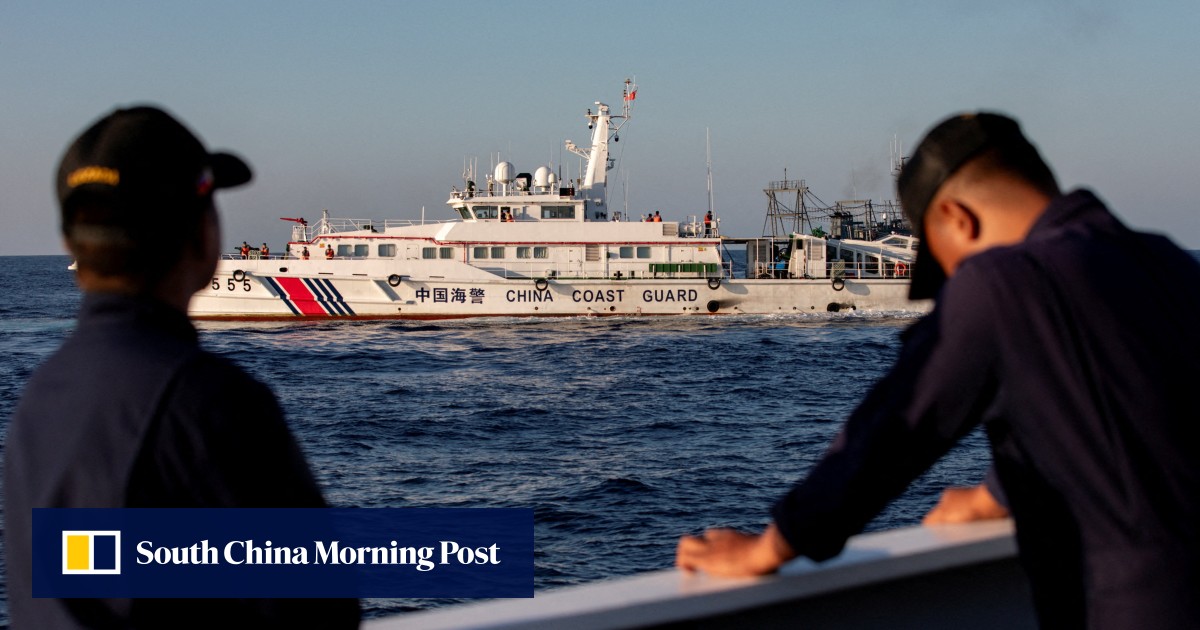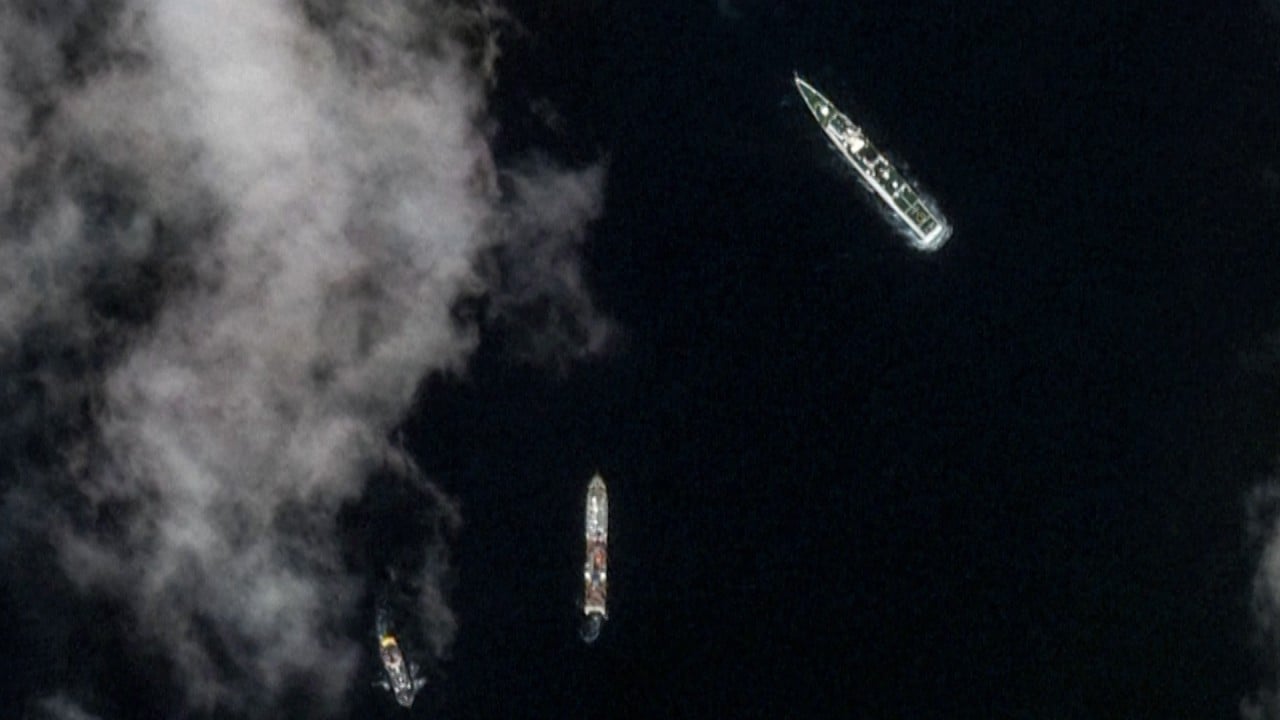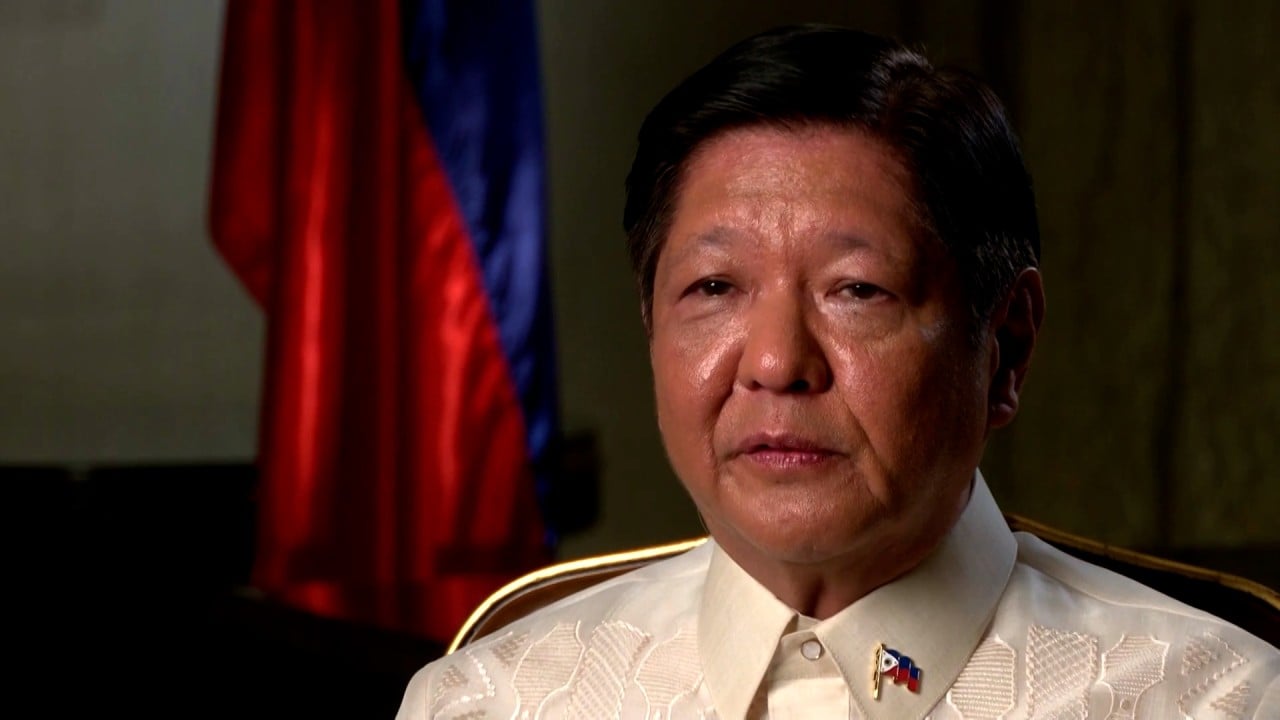Marcos Jnr said he “thanked [Austin] for making it very, very clear to everyone” about the invocation of the Mutual Defence Treaty in the event of a serious dispute in the waterways.
“And [Austin] said [this would happen] if a Filipino serviceman is killed because of an attack or an aggressive action by another foreign power,” Marcos Jnr told the Foreign Correspondents Association of the Philippines in Manila on Monday.
“As long as [a foreign power] actually caused casualties and has killed a serviceman … whether they’re merchant marine or coastguard or actual grey vessels or navy vessels, it does not matter. That it is an attack on the Philippines by a foreign power.”
His comments have cast the spotlight on Philippine coastguard personnel delivering supplies to the disputed Second Thomas Shoal, and Chinese vessels that have repeatedly used water cannons or ramming to disrupt the supply activities.
China, which calls the shoal Ren’ai Jiao, has long demanded that Manila remove a rusty naval vessel there that it beached decades ago to serve as a military outpost to lay claim to the area.
Retired Supreme Court associate justice Antonio Carpio told This Week in Asia that Austin’s assurance was in tandem with the comment by Indo-Pacific Command chief Admiral John Aquilino stating the Americans’ “ironclad” commitment to the defence of the Philippines at a US Lower House hearing last month.
The Lower House was deliberating higher defence spending recently proposed by Biden. According to a readout of Austin’s April 12 meeting with Marcos Jnr, Biden had included in his defence budget proposal a US$128 million request for 36 infrastructure projects under the Enhanced Defence Cooperation Agreement (EDCA) with Manila. The agreement currently encompasses nine sites in the Philippines.
Philippines, US, Japan to boost cooperation to deter Beijing in South China Sea
Philippines, US, Japan to boost cooperation to deter Beijing in South China Sea
During the US Lower House hearing, Aquilino told lawmakers that the West Philippine Sea – the name given by Manila for an area within the South China Sea that it considers its maritime territory – was a “critical hotspot right now that could end up in a bad place”. The Second Thomas Shoal is located in the West Philippine Sea.
“If a sailor or soldier, or one of their members, were killed, [Manila] could invoke Article 5 of the Mutual Defence Treaty,” Aquilino said.
The article states: “Each party recognises that an armed attack in the Pacific area on either of the Parties [the US and the Philippines] would be dangerous to its own peace and safety and declares that it would act to meet the common dangers in accordance with its constitutional processes.”
Amid the festering South China Sea row between Manila and Beijing, the Chinese embassy in Manila referred to Ren’ai Jiao in a statement last Friday and said: “The Chinese side has no choice but to take all necessary measures to safeguard its own sovereignty and territorial integrity.”
No more new EDCA bases
Marcos Jnr said he would no longer increase the number of EDCA bases after Manila added four sites on April 3 last year. EDCA bases technically do not belong to the US as they are located within existing Philippine facilities and do not need Senate approval, only an executive order.
He blamed China’s aggressive action against Philippine vessels for forcing him to strengthen the EDCA arrangement – three of the latest sites are located in the country’s northern tip facing Taiwan and the fourth is on the island of Balabac, 127 nautical miles from the Second Thomas Shoal.
“The Philippines has no plan to create any more bases or give [the US] access to any more bases.”
On the proposed reciprocal access agreement with Japan, Marcos Jnr said the two countries were “very close” to signing it. He said, however, that the pact with Tokyo was unlike the Visiting Forces Agreement that Manila had with Washington, which allowed US soldiers extended stay in rotations.
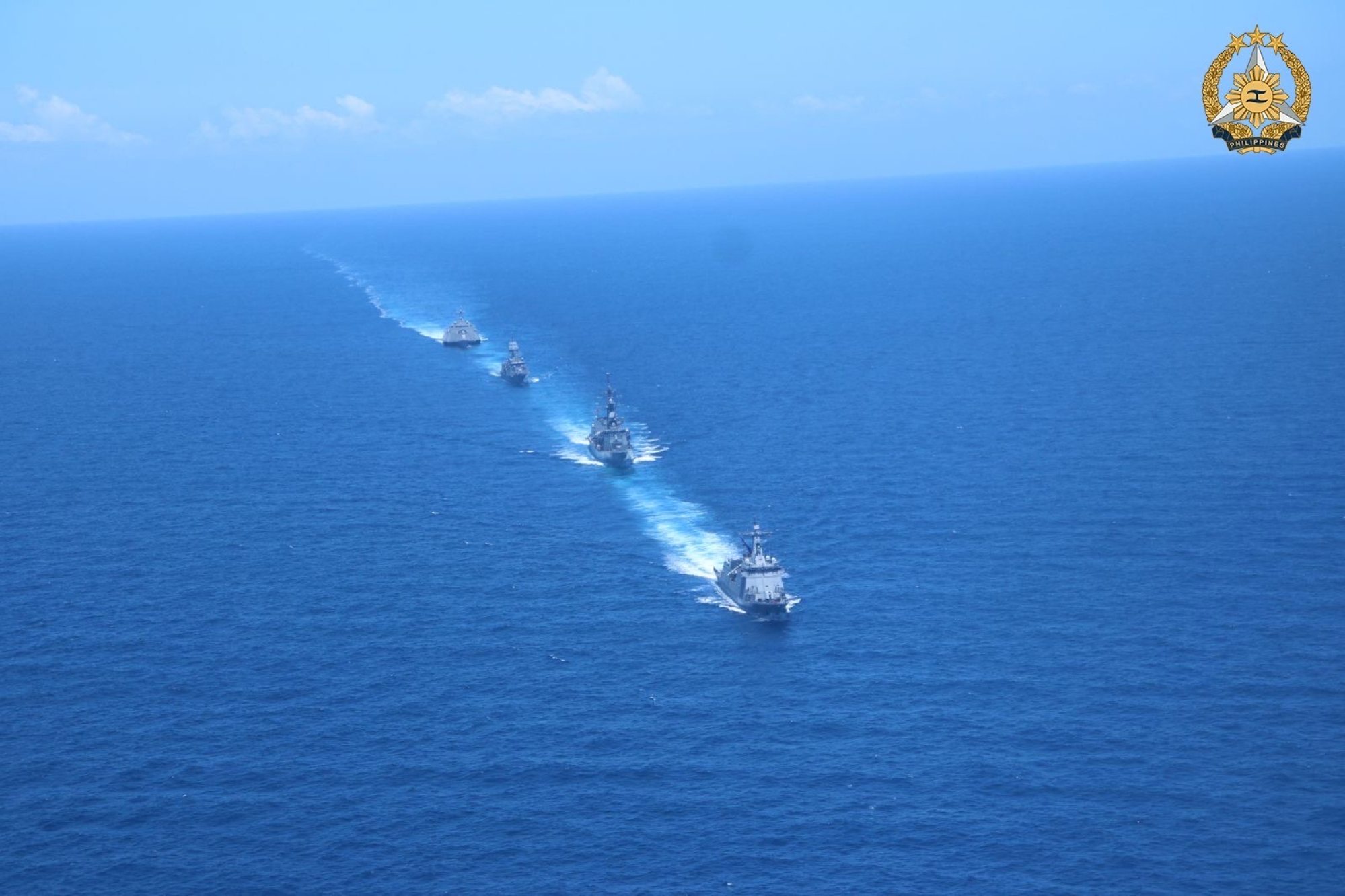
Marcos Jnr denied he had increased the number of EDCA bases to protect the Philippines in the event of an open conflict between the US and China over Taiwan, clarifying that the move was related to the South China Sea row.
Beijing views Taiwan as a renegade province that should be reintegrated into mainland control, by force if necessary. While many nations, including the US, do not officially acknowledge Taiwan as an independent state, they oppose any use of force to alter the status quo.
“No, I think this is turning the situation on its head. These [additional EDCA bases] are reactions to what happened in the South China Sea, to the aggressive actions we have had to deal with – the water cannoning, the lasers, the collision, the blocking of our banca [Tagalog for boats] of our fishermen, the putting of barriers across Scarborough Shoal, this is a reaction to that.”
He said the recent trilateral summit in Washington was “not a response to the immediate or current incidents that are happening to us, but a continuing development and evolution of a relationship that we have always had with the US and Japan.
“It is not directed at anyone or against anyone, it is merely a strengthening or a formalisation or an institutionalisation of the relationship of the US, Japan and the Philippines.”
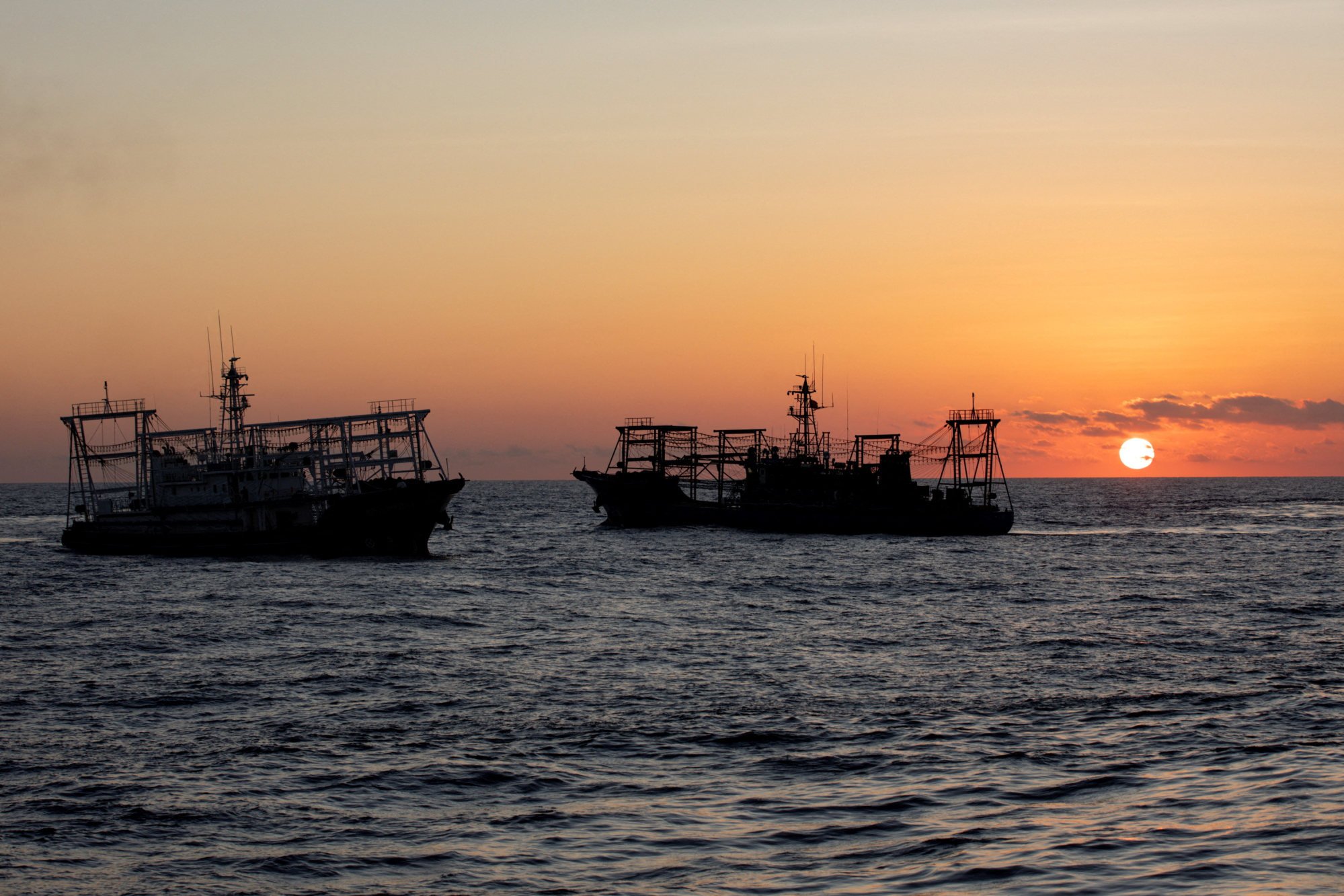
While security and defence were “a great part of that trilateral agreement,” Marcos Jnr said “an even greater part is the economic cooperation that is being fostered by the trilateral agreement”.
For instance, he said, the leaders discussed cooperation in semiconductors, renewable energy and technology transfer.
The Philippines would continue its oil and gas exploration activities in the South China Sea but would aim to avoid being embroiled in a dispute with China, Marcos Jnr added. The country plans to start with “low-hanging fruit or those reserves within our EEZ but not in our conflict area”.
Underlining Manila’s commitment to resume the activities in the West Philippine Sea despite its row with Beijing, Marcos Jnr said: “[The Chinese] insist these areas are in Chinese territories, therefore China law must be there. We of course don’t accept that.”

